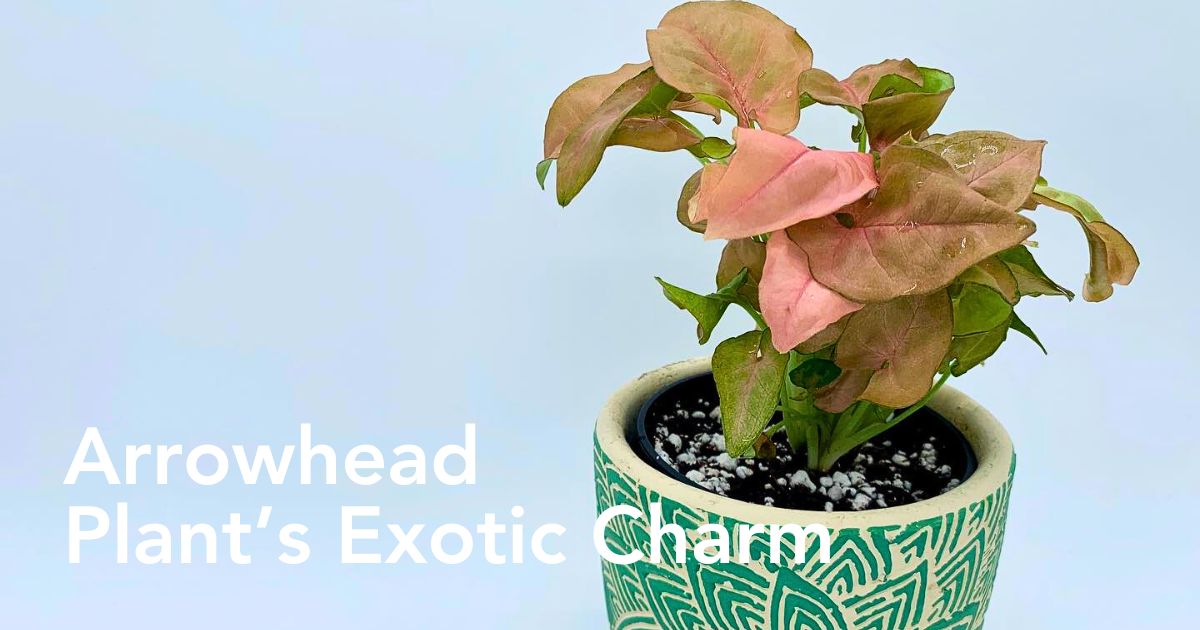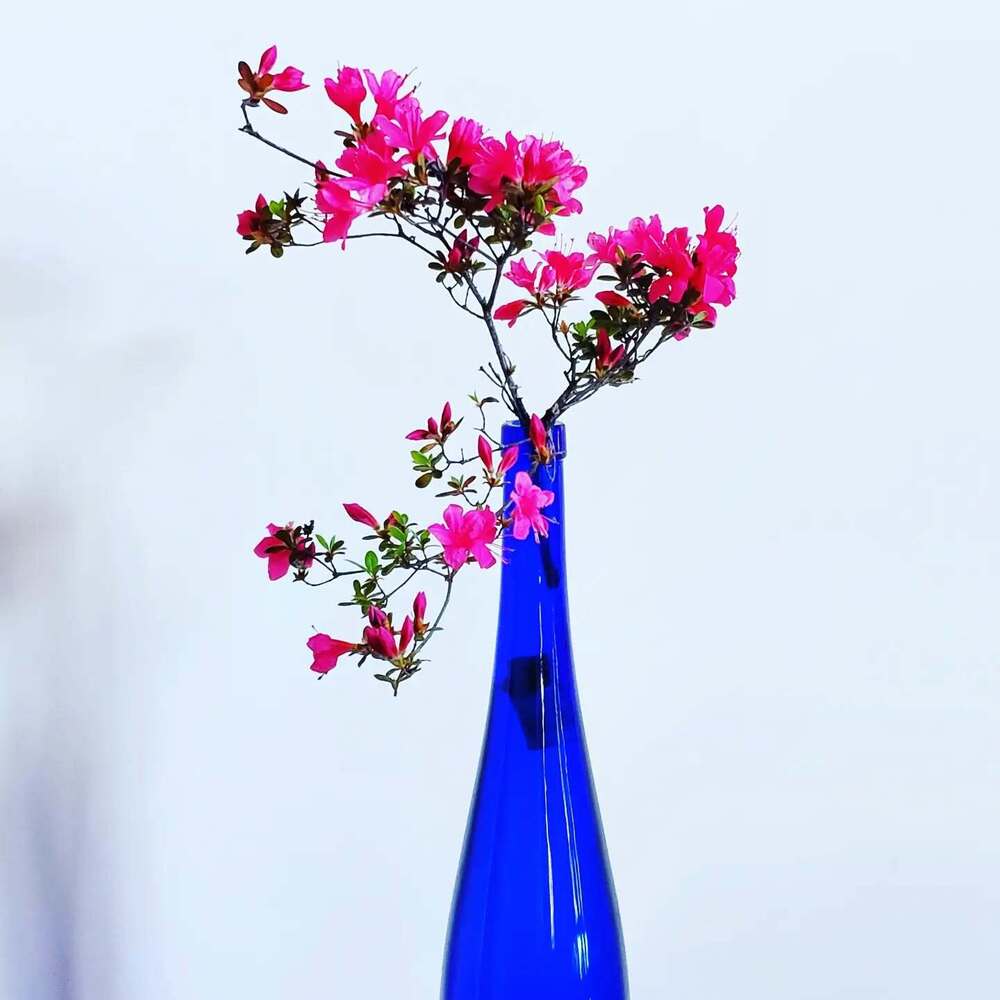Syngonium, often referred to as the arrowhead vine or arrowhead plant, is an impressive indoor plant; perhaps, among the most delightful you’d come across. With large leaves that look a lot like arrowheads and trailing forms, this plant that starts compact possesses an adaptable nature and has become, quite, a staple in many homes. It offers, not only aesthetic appeal but also serenity and, symbolically, good fortune.
A genus of flowering plants in the family Araceae, the versatile Syngonium, like most other houseplants, contributes to a healthier indoor environment. Plus, varieties like Syngonium podophyllum are renowned for their ability to thrive in different conditions; thus, they are an ideal choice for both beginners and seasoned gardeners. A comprehensive look into this plant would, therefore, provide more insights about it.
Syngonium Plant’s Native Habitat and Distribution
Syngonium plant is native to the tropical rainforests of Central and South America, particularly in countries like Mexico, Brazil, and Costa Rica. It flourishes in the understories of these forests, where it enjoys filtered light and high humidity levels. These natural habitats are characterized by dappled sunlight sifting through the dense canopy, providing the ideal conditions for the plant's vigorous growth.
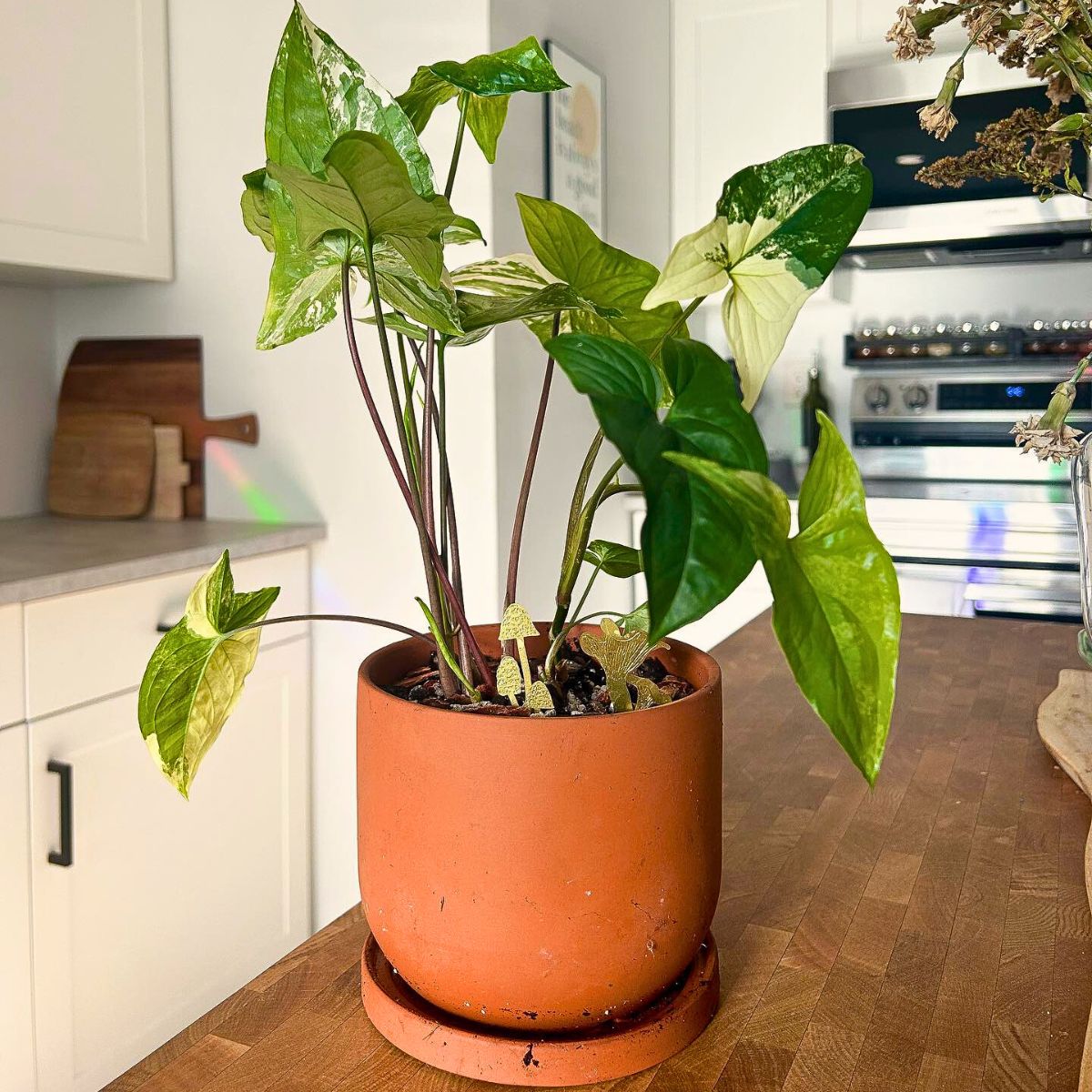
Over the years, Syngonium has been cultivated and distributed worldwide, making it a popular houseplant in different regions. Its widespread appeal is largely attributed to its adaptability to various indoor conditions; thus, it can grow well inside homes, offices, and other communal spaces. Among the many varieties available, the Syngonium podophyllum is one of the most popular, known for its heart-shaped leaves that mature into shades of pink, white, or cream. Notable assortments here include Syngonium 'Neon Robusta', Syngonium 'Pink Splash', and Syngonium 'White Butterfly'. Syngonium podophyllum Albo Variegatum is also, quite popular as well, while Syngonium macrophyllum, also called frosted heart or giant-leaf arrowhead vine is a somewhat rarer variety. Each of these Syngoniums offers unique color patterns and textures that add to their charm.
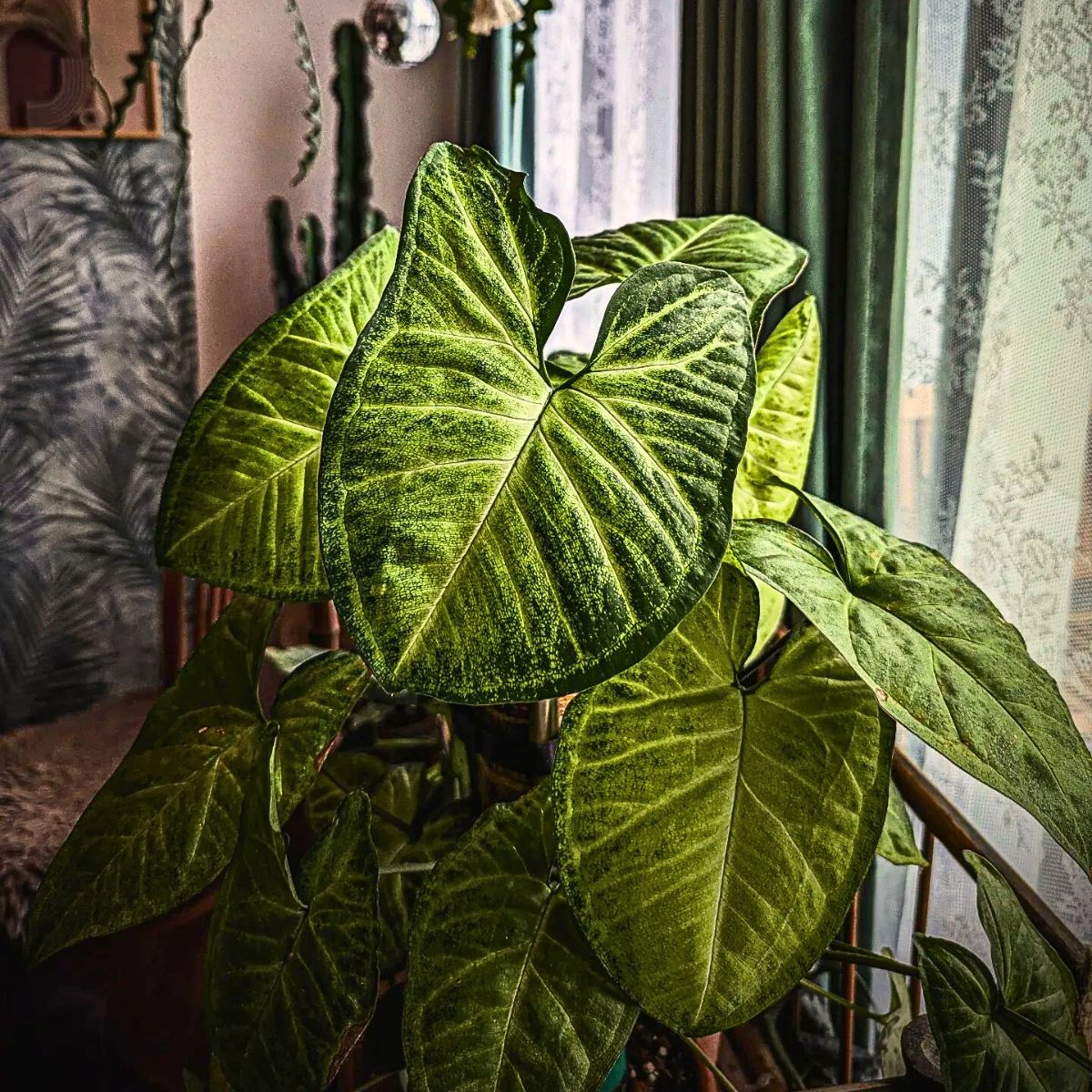
Syngonium Plants in Home Décor
When used in home décor, a Syngonium plant can be placed in different settings, from hanging baskets to decorative pots on shelves. Its climbing nature allows it to be trained on trellises or moss poles, bringing vertical interest to your space. The pink Syngonium, in particular, adds a hint of romance with its delicate hues, making it a perfect choice for creating a cozy and intimate environment. This, could, therefore, make it an ideal gift for loved ones, especially around some occasions such as Valentine’s. Even still, its vibrant foliage can brighten up a place, creating a warm and inviting atmosphere.
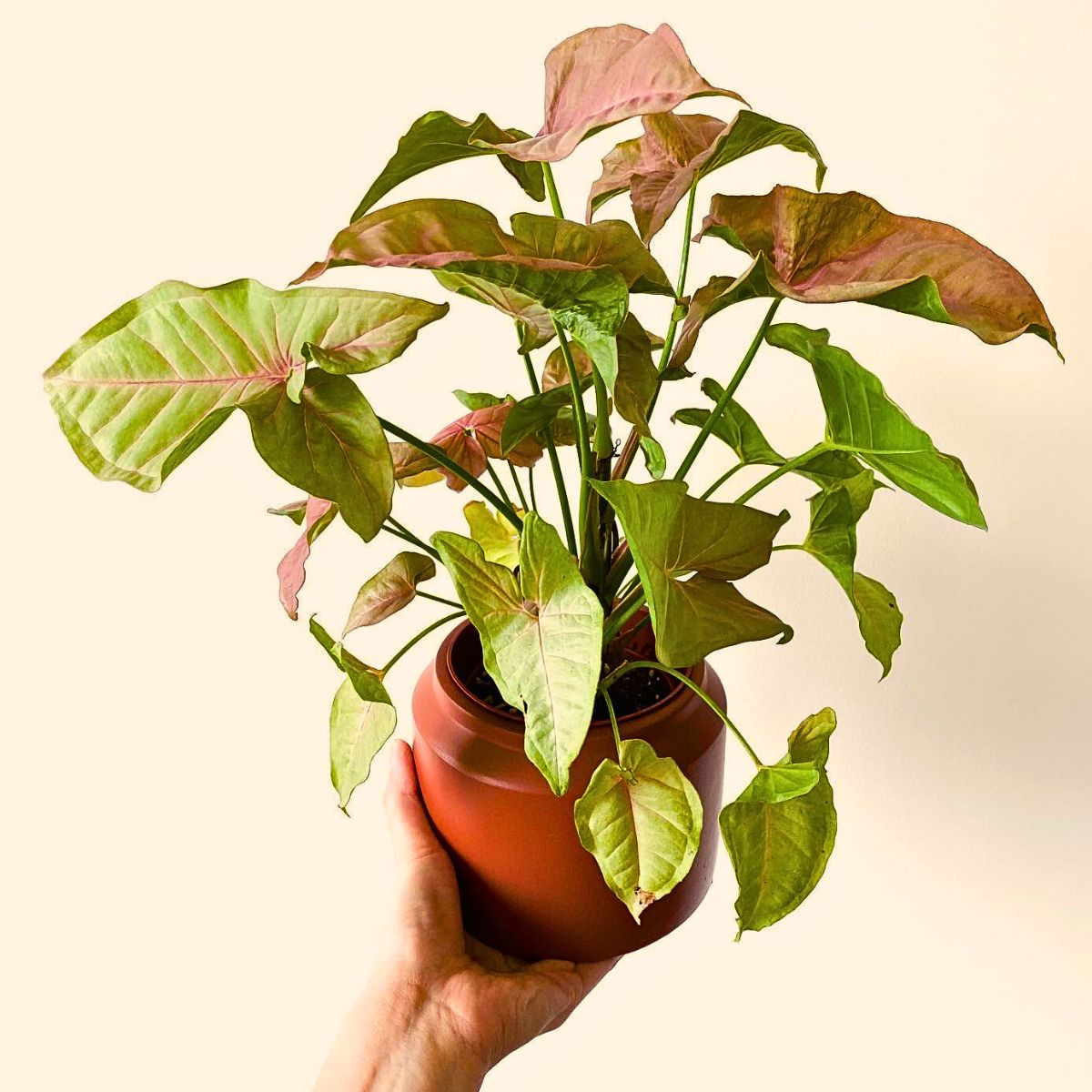
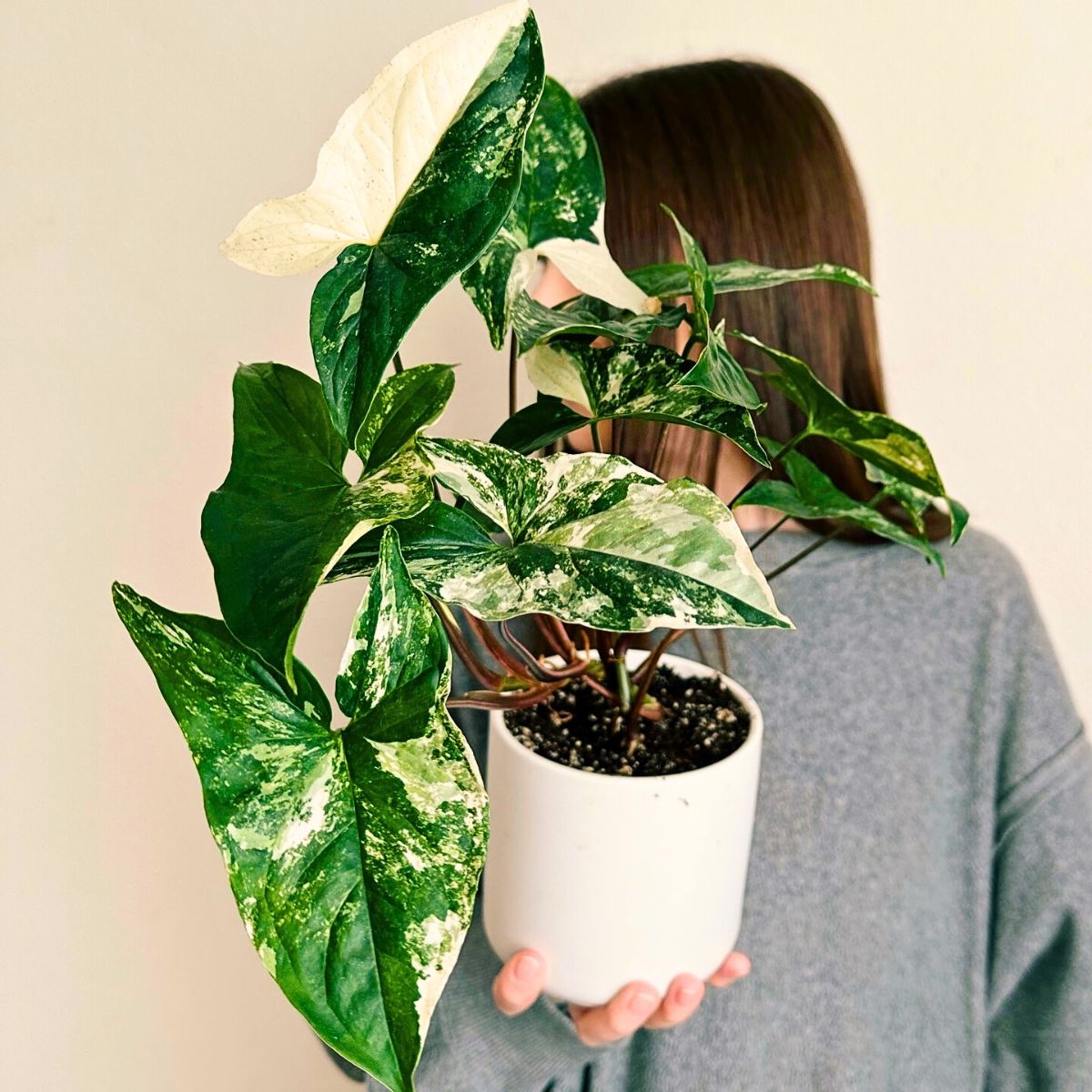
Some Unique Symbolisms Associated With Syngonium in Home Décor
Arrowhead plants are more than just a beautiful incorporation in the home; they, also carry important symbolism that boosts their appeal. In many cultures, these plants are often associated with love, growth, and prosperity. The plant’s heart-shaped leaves, often, give it the element of affection and care. But other than that, it can embody other inferences such as luck and prosperity. In this case, a variety like Syngonium wendlandii, is generally seen as a symbol of luck and prosperity. This variety’s resilience and lush growth mirror the thriving aspects of life. It, as a result, is a popular choice for those seeking to attract positive energy into their homes.
The pink Syngonium, with its vibrant pink and green foliage, adds a touch of drama to the room, though like any others, it requires careful handling due to its toxicity. On Valentine's Day, this Syngonium could be a thoughtful gift as well, symbolizing love, due to its lush, heart-shaped leaves. Syngonium albo, on the other hand, with its striking white and green leaves, could, also add a romantic element to the space, signifying purity and harmony.
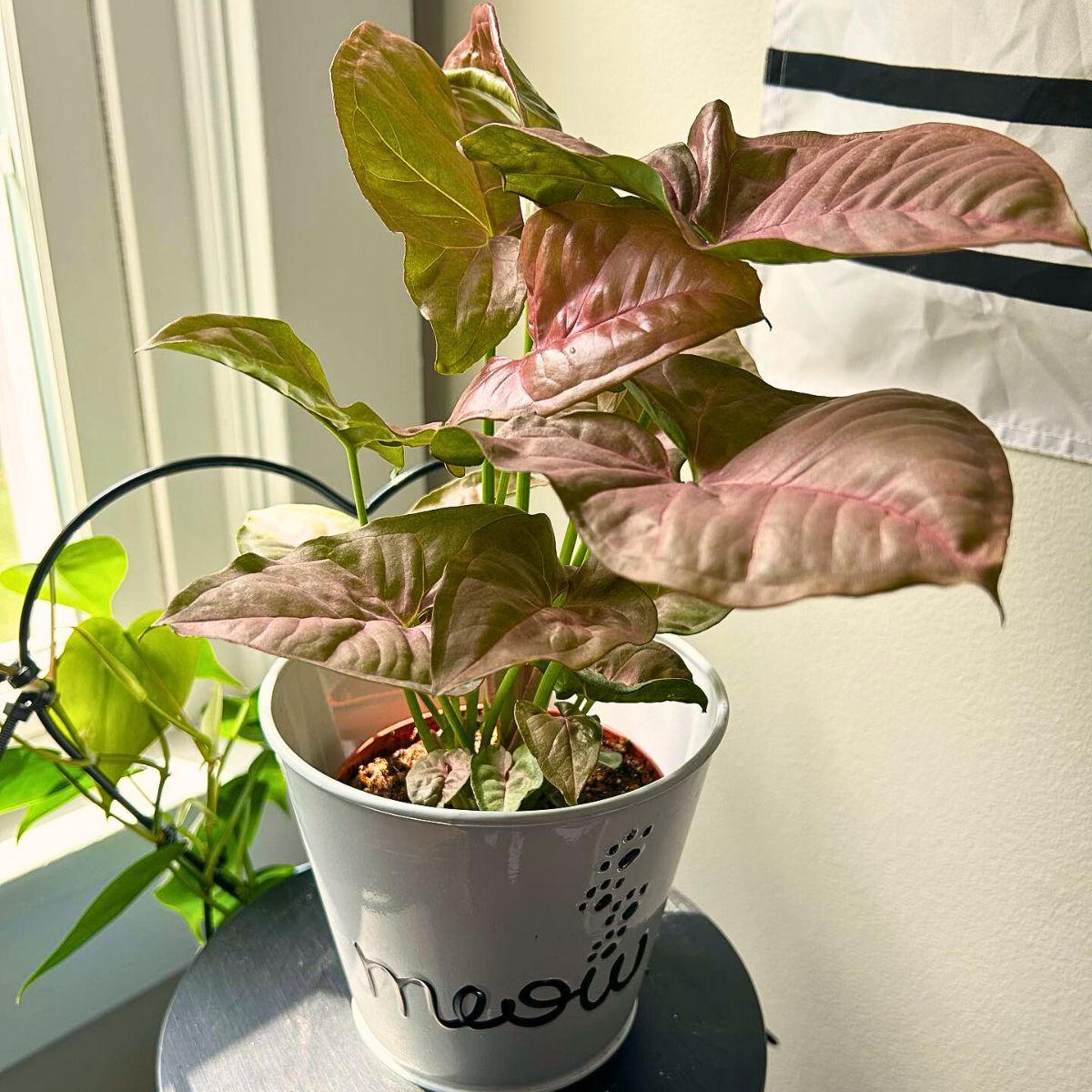
The Syngonium is also, generally seen as a symbol of personal growth and friendship. It represents the journey of nurturing relationships and oneself. This could make it an ideal gift for friends or as a prompt for personal development. Even more, in feng shui, Syngonium podophyllum is valued for its ability to balance Yin and Yang energy. In this context, the five-lobed shape of its leaves represents the five elements: water, fire, earth, wood, and metal. This equilibrium encourages positive chi in the home.
What is more, some varieties like Syngonium 'Mini Allusion' could, also, symbolize wealth, growth, and renewal. This variety’s lush leaves are believed to steer positive energy toward financial and personal expansion. It is, as a result, a popular choice for those pursuing prosperity. This symbolism, also, resonates with those seeking to create a space that nurtures positive energy and promotes well-being.
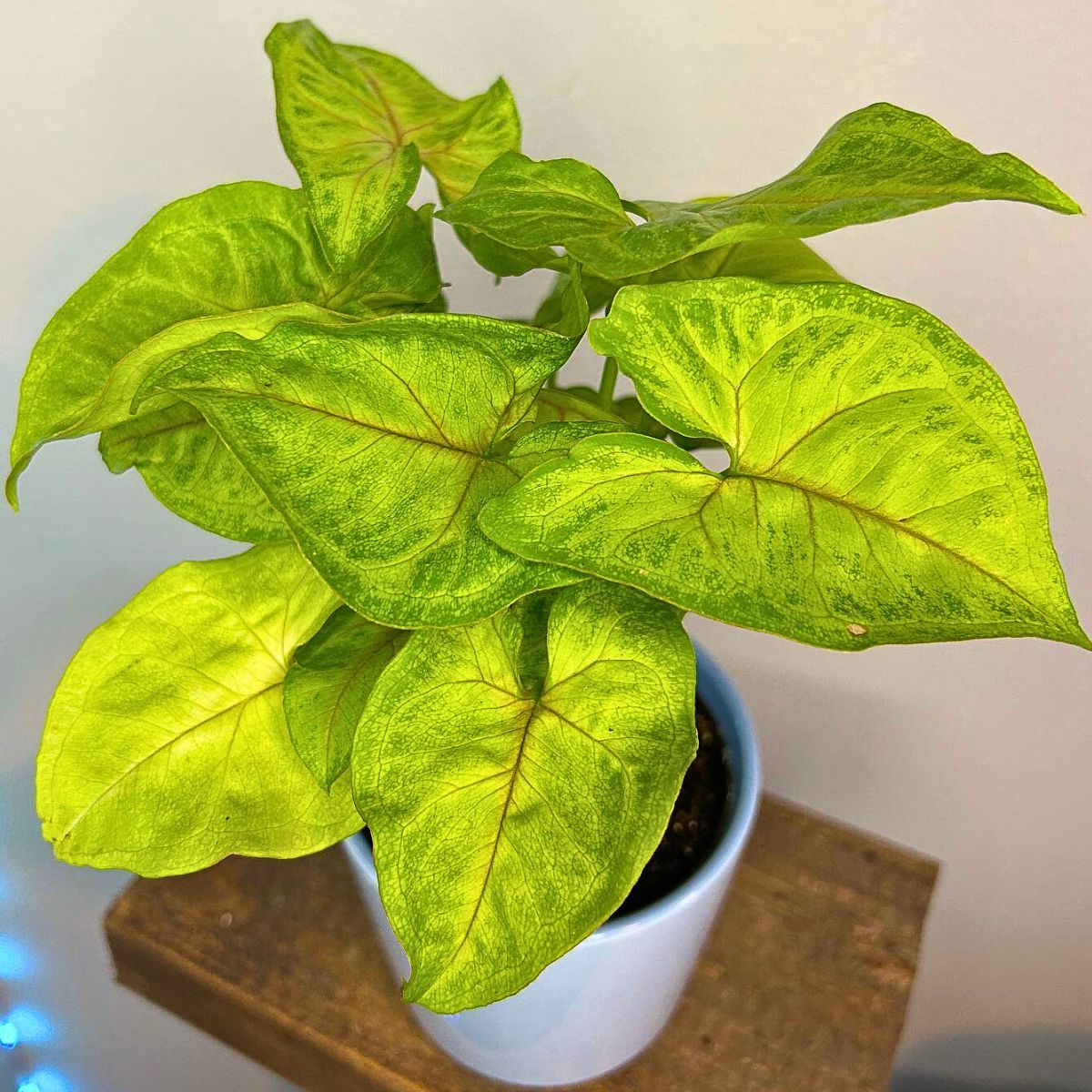
Away from the material benefits, the Syngonium is also seen as a spiritual anchor. It provides a peaceful backdrop for meditation and reflection. It creates a serene environment that harmonizes energy within a space. Plus, it fashions a sense of a tropical oasis for well-being. Varieties like the Syngonium Neon are perfect for this effect. They evoke a sense of well-being and transport one to a dreamy tropical paradise, adding an exotic touch to a space, and promoting a sense of calm and tranquility.
With these numerous symbolisms, incorporating Syngonium plants into home décor, therefore, not only enhances the aesthetic appeal but also brings symbolic meanings that could improve the living environment in different ways; from enhancing luck to promoting personal growth, or simply creating a form of tropical retreat.
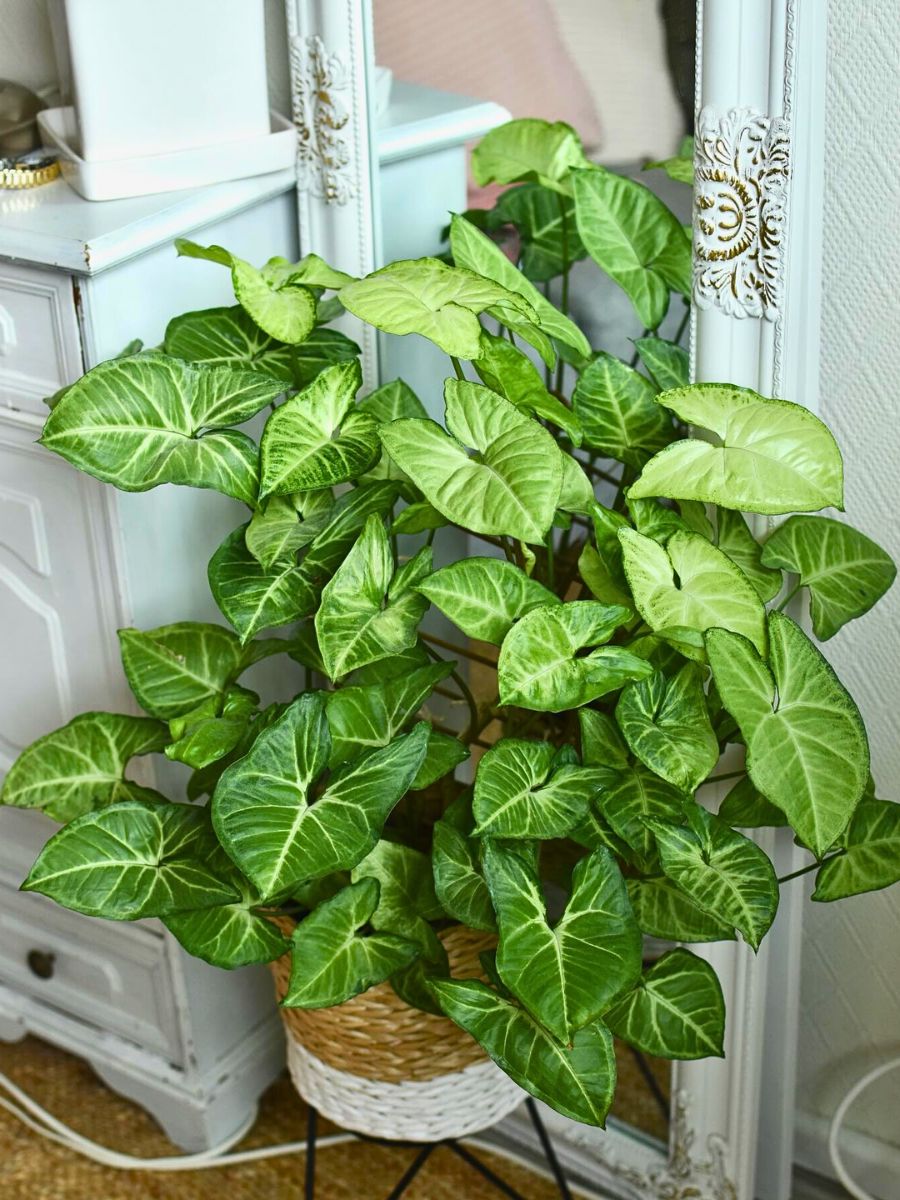
Can It Be Ideal as a Valentine’s Gift?
May Syngonium varieties have heart-shaped leaves that lend themselves perfectly to Valentine's themes. The pink Syngonium, in particular, radiates a romantic aura, thus an ideal plant gift for loved ones. Its delicate beauty and subtly lively color could symbolize affection and passion, adding meaning to romantic celebrations. The Syngonium's association with growth and renewal, could, also make it symbolic of lasting love and commitment. What is more, the plant's ability to thrive in various environments could be thought of as a reflection of the resilience of love capable of blossoming even in challenging circumstances. Thus, gifting a Syngonium on Valentine's Day is a unique gesture that departs from the usual flower gifts.
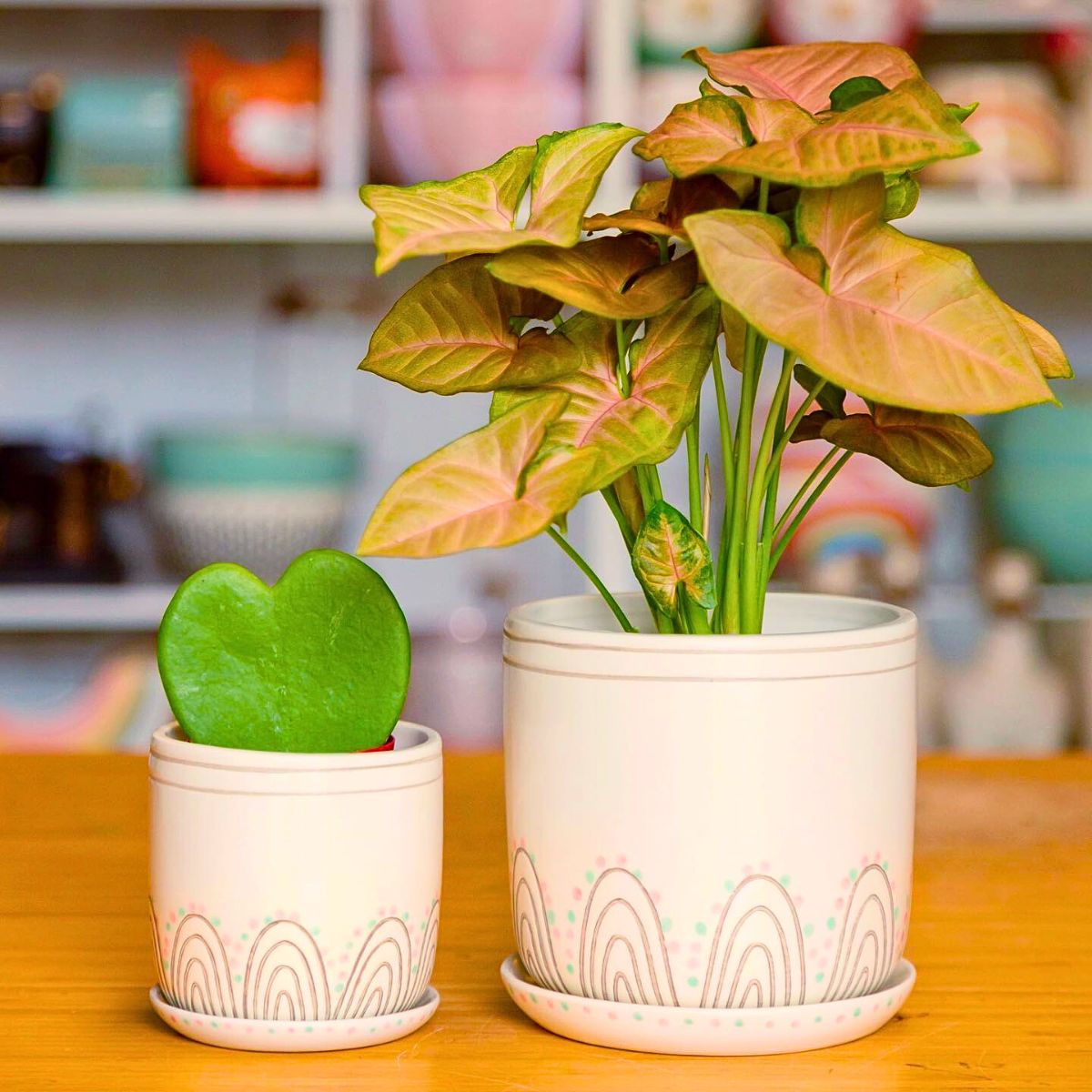
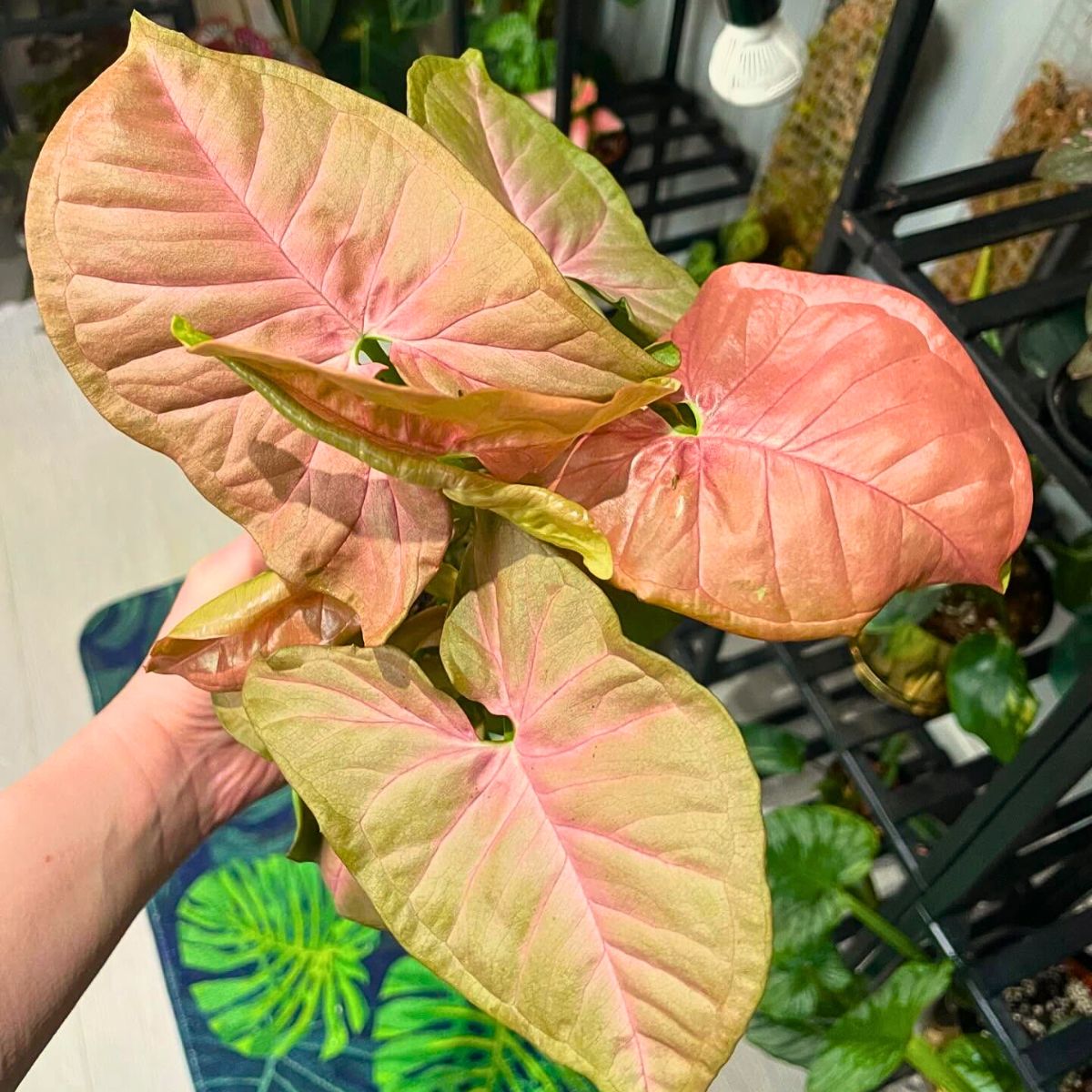
Benefits of Indoor Plants Including Syngonium Varieties
Having plants in indoor spaces has so many benefits. Incorporating species like Syngonium into your home not only improves the visual appeal but also contributes to a healthier living environment. Studies have shown that plants can improve air quality by filtering out pollutants and releasing oxygen. They can also reduce stress levels, enhance mood, and boost productivity. The calming presence of greenery can, similarly, transform a living space, creating a more relaxing and inviting atmosphere. With its vibrant foliage and ease of care, Syngonium is, therefore, an excellent choice for those seeking to enhance their indoor environment and gain the rewards of indoor gardening. The visual appeal of the Syngonium arrowhead plant; its unique leaf shapes and different stunning colors, contribute significantly to this positive effect.
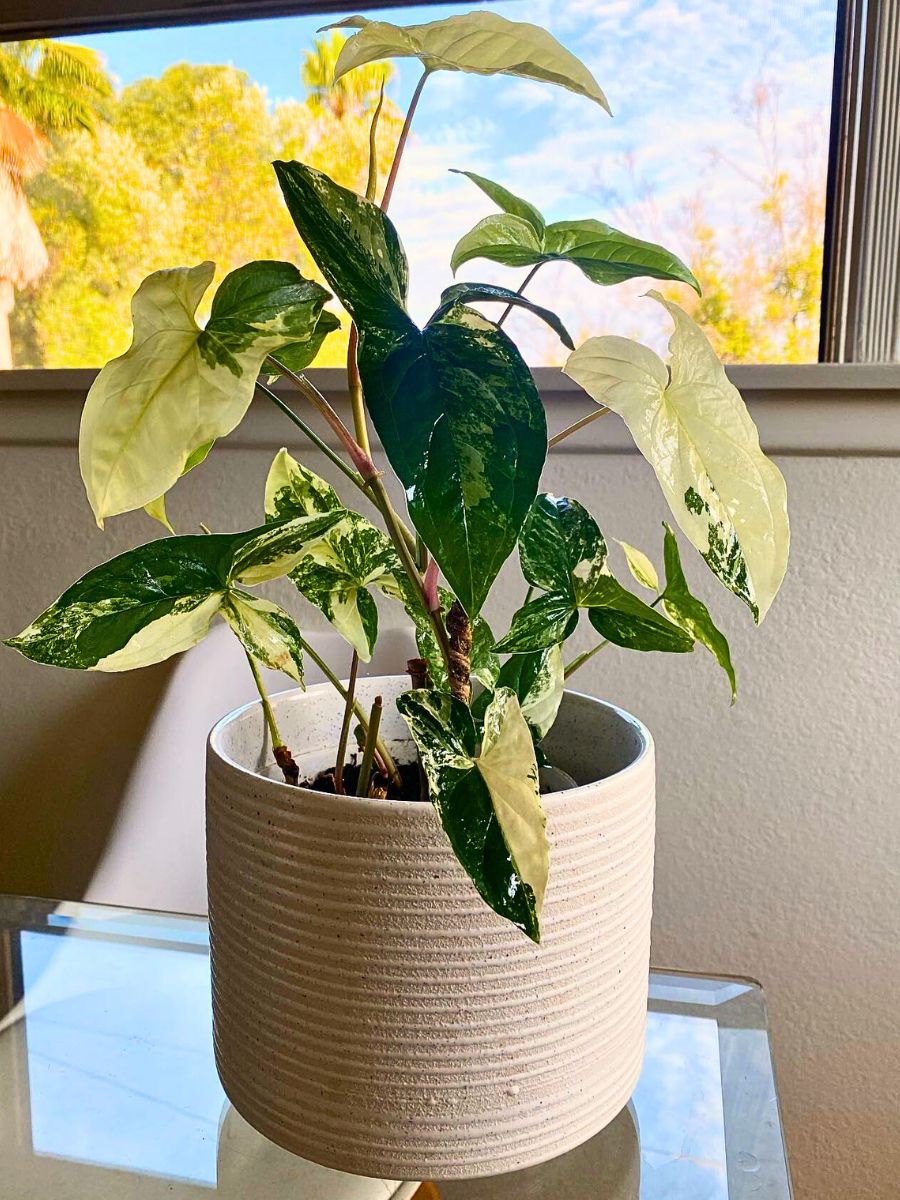
Are Syngoniums Toxic to Cats and Other Pets?
The question: Are Syngoniums toxic to cats? is often a critical one for pet owners who would want to have the plant in their homes. The answer is, however, a qualified yes. Despite their many benefits, Syngonium plants are toxic to cats and some other livestock. The main toxic components are the insoluble calcium oxalate crystals, which are found in all parts of the plant. Symptoms of ingestion could range from mild discomfort to severe distress, depending on the amount ingested. When a cat ingests these crystals, it can lead to oral irritation, drooling, difficulty swallowing, vomiting, and breathing difficulties due to swelling of the upper airway. Skin irritation could also occur if a cat rubs against the plant. Even more, the plant could also be toxic to humans so care is, definitely, needed when working with it.
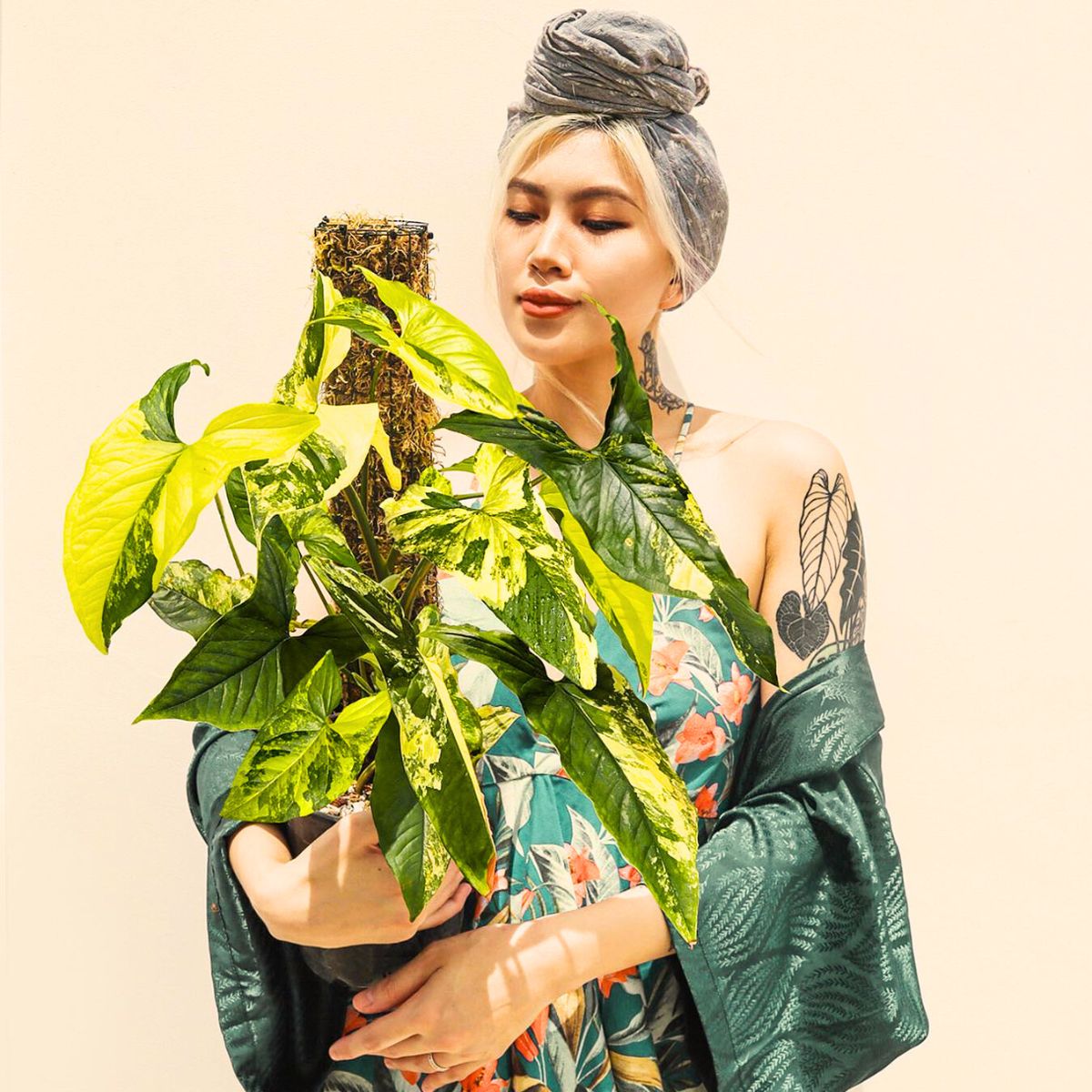
If your cat is exposed to the Syngonium plant, fast veterinary care is important. Decontamination may involve inducing vomiting or administering activated charcoal to absorb the toxins. Intravenous fluids may, also, be necessary to manage symptoms and prevent dehydration. Most cases recover with prompt treatment, but it is important to monitor them for any long-term effects and regularly check with a vet. Such reasons warrant keeping the Syngonium plant out of reach of pets.
Does the Syngonium Climb?
When the question: Does the Syngonium plant climb? is frequently asked as well, and the answer is generally yes, Syngonium plants are climbers. The plant is a climbing vine by nature, though its climbing habit is often understated. In its natural habitat, it uses trees and other structures to support its climbing growth. Indoors, however, these plants are not aggressive climbers like some other plant varieties. But then again they will readily climb with support.
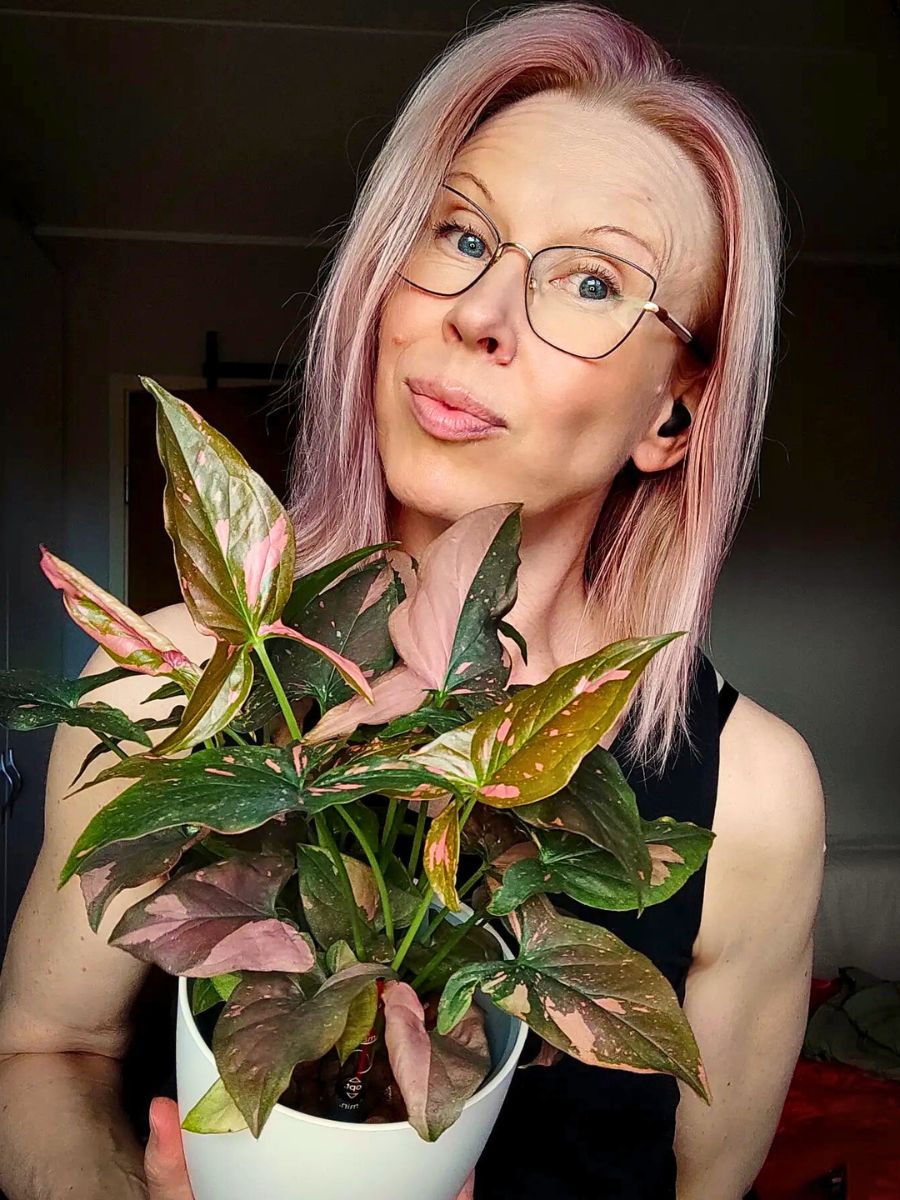
When grown indoors, you can encourage your Syngonium to climb by providing a moss pole or trellis. This will encourage the Syngonium plant to climb vertically, which in turn creates a stunning vertical display. This nature adds to their versatility as houseplants, allowing them to be incorporated into various arrangements and settings. Not only does it help the plant grow taller, but also stimulates larger, more mature leaves. If left unsupported, however, the Syngonium will spread out as a ground cover, creating a lush, green carpet.
Syngonium Plant Care and Maintenance
Syngonium plant care is, also, essential. Ensuring optimal growth and health of the Syngonium plant, therefore, requires a comprehensive understanding of its care needs and requirements.
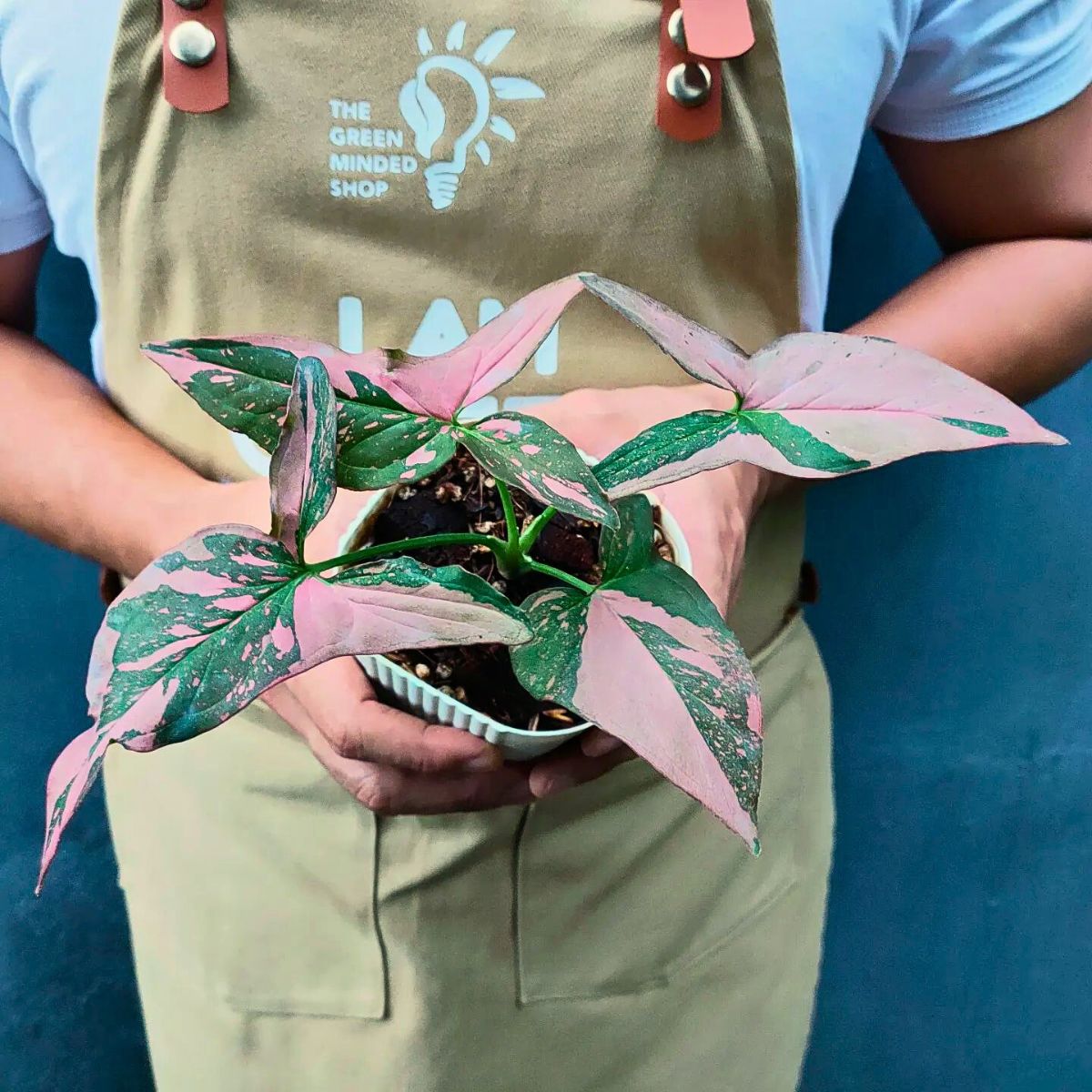
Light Requirements
Syngonium plants prefer bright, indirect light. While they can tolerate low-light conditions, providing adequate light will promote healthier growth and vibrant foliage. If you notice your Syngonium plant becoming gangly or losing its variegation, it may be a sign that it needs more light.
Watering
Maintaining the right moisture level is crucial for the health of the Syngonium. The soil should be kept evenly moist but not soggy. Water the plant only when the top inch of soil feels dry to the touch. Overwatering can lead to root rot, while under-watering can cause the leaves to droop.
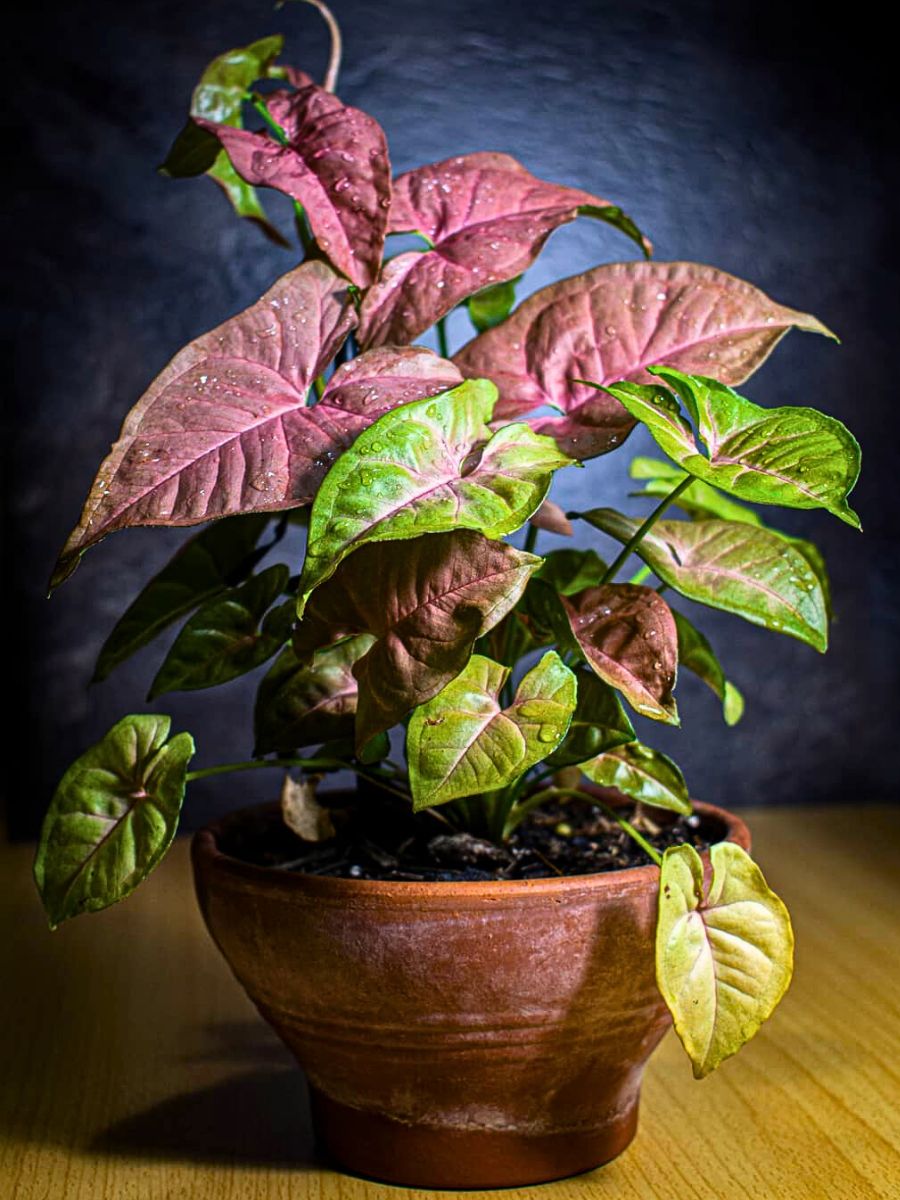
Humidity and Temperature
As a tropical plant, the Syngonium thrives in high humidity levels. So, aim for a humidity level of around 50-70%. If your home is dry, consider using a humidifier or placing a pebble tray filled with water beneath the pot. The ideal temperature range for Syngonium is between 60°F to 80°F (15°C to 27°C). Also, avoid placing your plant in draughty areas or near heating vents.
Soil and Fertilization
A well-draining potting mix is essential for the Syngonium to thrive. A blend of potting soil, perlite, and orchid bark works well. To promote healthy growth and development of the plant, fertilize the Syngonium every four to six weeks during the growing season with a balanced liquid fertilizer.
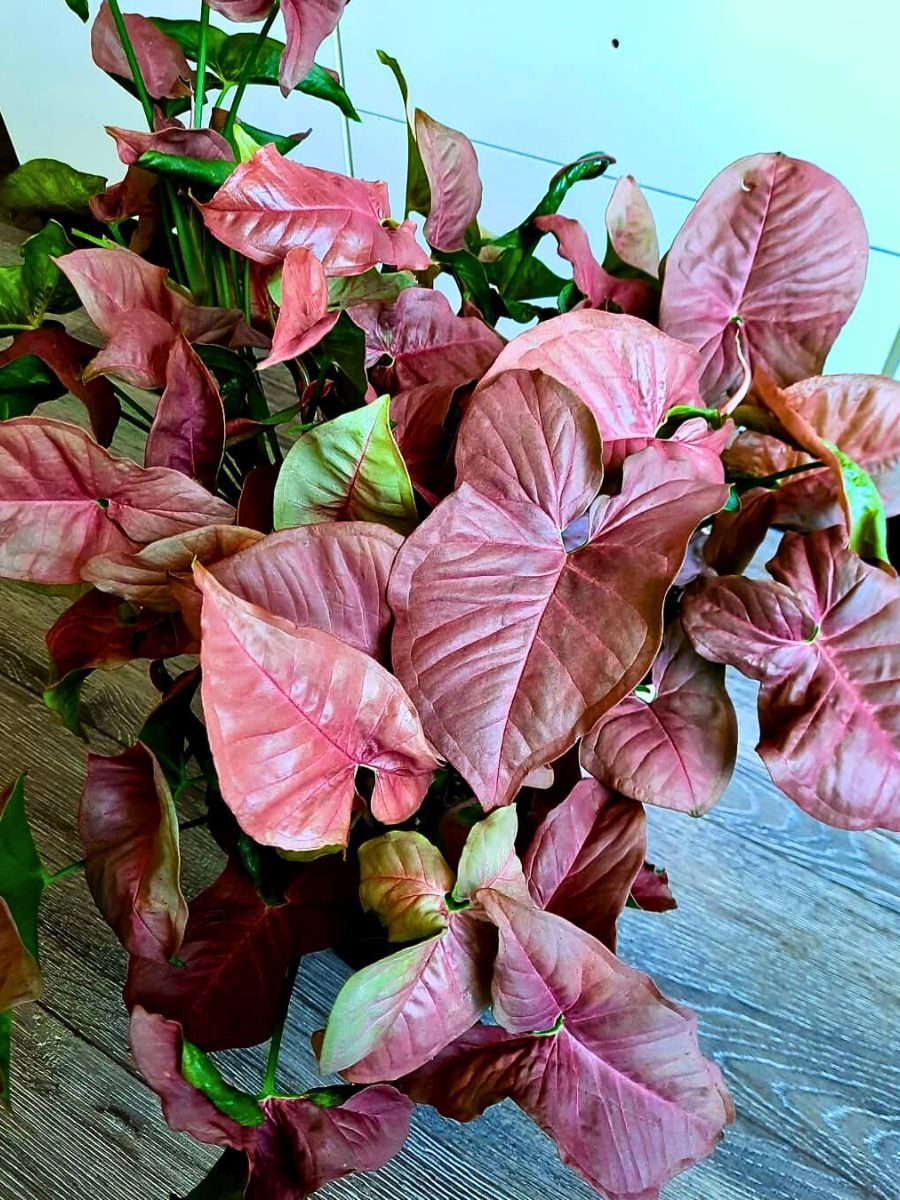
How to Propagate the Syngonium Plant
Syngonium plants can be easily propagated using stem cuttings, which are the most common means of propagation. This process involves choosing a healthy stem with at least one leaf and a node (the point where leaves attach to the stem), then disinfecting the cutting tool and snipping just above the leaf node. Apply a rooting hormone if available, and then plant the cutting in a well-draining potting mix.
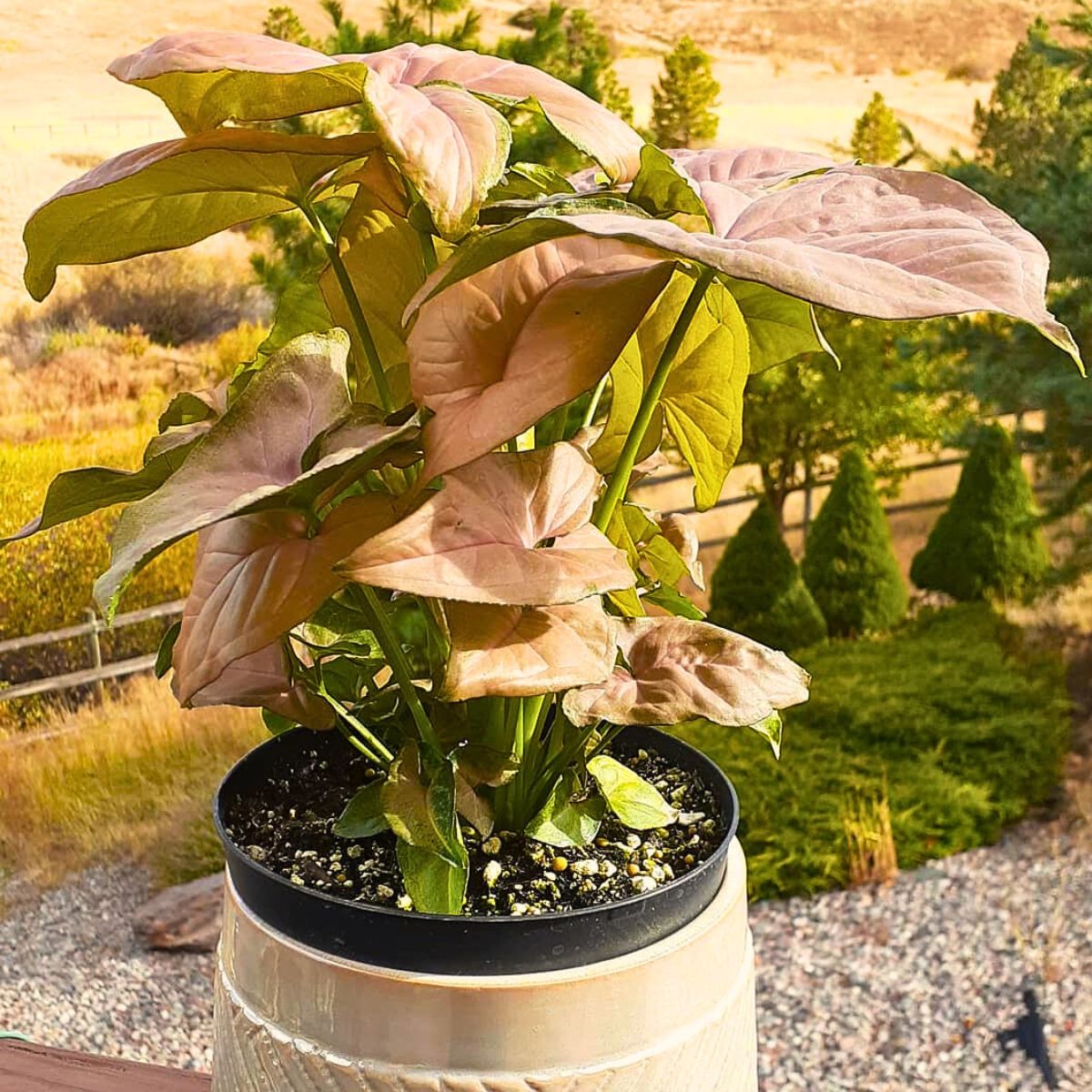
Within a few weeks, roots will develop, and a new plant will emerge. This simple method allows you to expand your Syngonium collection quickly and inexpensively. With these in mind, you can guarantee yourself a thriving Syngonium plant that, in turn, enhances your home's décor or simply gives you the benefits of enjoying indoor gardening.
Featured image by @mskarina.so, header image by @preciousgreenery

